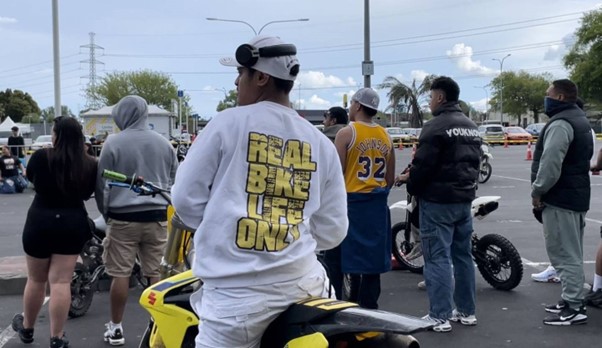
Our Youth Mental Health initiative carried out “empathy interviews” to develop case narratives to understand the lived experience of Pacific and Māori youth living in South Auckland.
Empathy interviews are typically one-on-one conversations that use open-ended questions to elicit stories about specific experiences that help uncover unacknowledged needs.
“The interviews confirmed to us that the current mental health support system is inadequate for young Pacific and Maori in South Auckland,” says Narita Vaivai, Systems Innovator for Healthy Families South Auckland.
“Mental wellbeing has significant impact on the lives of Māori and Pasifika youth. The young people we talked to overwhelmingly confirmed that they didn’t know how to access mental health services or know who to call when it came to information or in times of desperation and need.”
According to Nelsestuen and Smith (2020) these types of interviews are critical as they more accurately and directly represent the lives of people who are often marginalised and excluded from traditional data and research methods.
“The case narratives are an important piece of our discovery process to understand the first-hand experience of the youth living in South Auckland. We interviewed a range of 18-24 years old Pacific and Māori youth living in South Auckland from a diverse range of ethnic backgrounds and cultures,” says Narita.
“All of the people we interviewed were at different stages of life and trying to make their way through the early stages of adulthood. A few of them were students, some had employment, others didn’t, but they had a varied mix of interests and hobbies.”
Healthy Families South Auckland recognises that the system typically tends to ‘kick-into-action’ at the acute end, when a clinical intervention is needed. Our work is focused on the prevention space to ensure that our young people are thriving and are equipped to face the wellbeing challenges in the places where they live, learn, work and play. For example, young people are connected to who they are (identity and culture), surrounded with adequate support or can access it.
Narita Vaivai shares the four key themes from the case narratives.
- Intergenerational Dynamic and Its Impact
The intersection of intergenerational dynamics, Christian faith, and cultural values significantly influences the mental wellbeing of youth in Pacific communities.
- Limited access to mental health services
One of the central challenges highlighted in the case narratives is the limited access to mental health services. Many young people require support but find it challenging to navigate the system.
- Awareness Gap
There is a general lack of awareness regarding available services in the community. This lack of awareness limits the utilisation of counselling services. The low utilisation of counseling services suggests that there is a significant gap in both awareness and access.
- Youth Desires
Young people are vocal about their need for tailored support, particularly in navigating the complexities of social media and digital culture. They express a desire for support that delves deeper than surface-level assistance, addressing their emotional, mental, and educational needs.
The case narratives have been complied into a consolidated report and will be released in April 2024.
Additional information about Pacific and Māori Mental Health
Māori and Pasifika youth groups are often more vulnerable. A Youth19 study showed that emotional and mental wellbeing among rangatahi Māori between 2012 and 2019 had declined:
- Positive wellbeing (as measured by the WHO-5 wellbeing index) dropped from 75% to 67%. (1)
- Their significant depressive symptoms rose from 14% to 28%. (2)
- The number of those who had attempted suicide in the past 12 months rose from 6% to 13%. (3)
The same study revealed a similar worsening trend for the emotional and mental wellbeing of Pasifika youth: